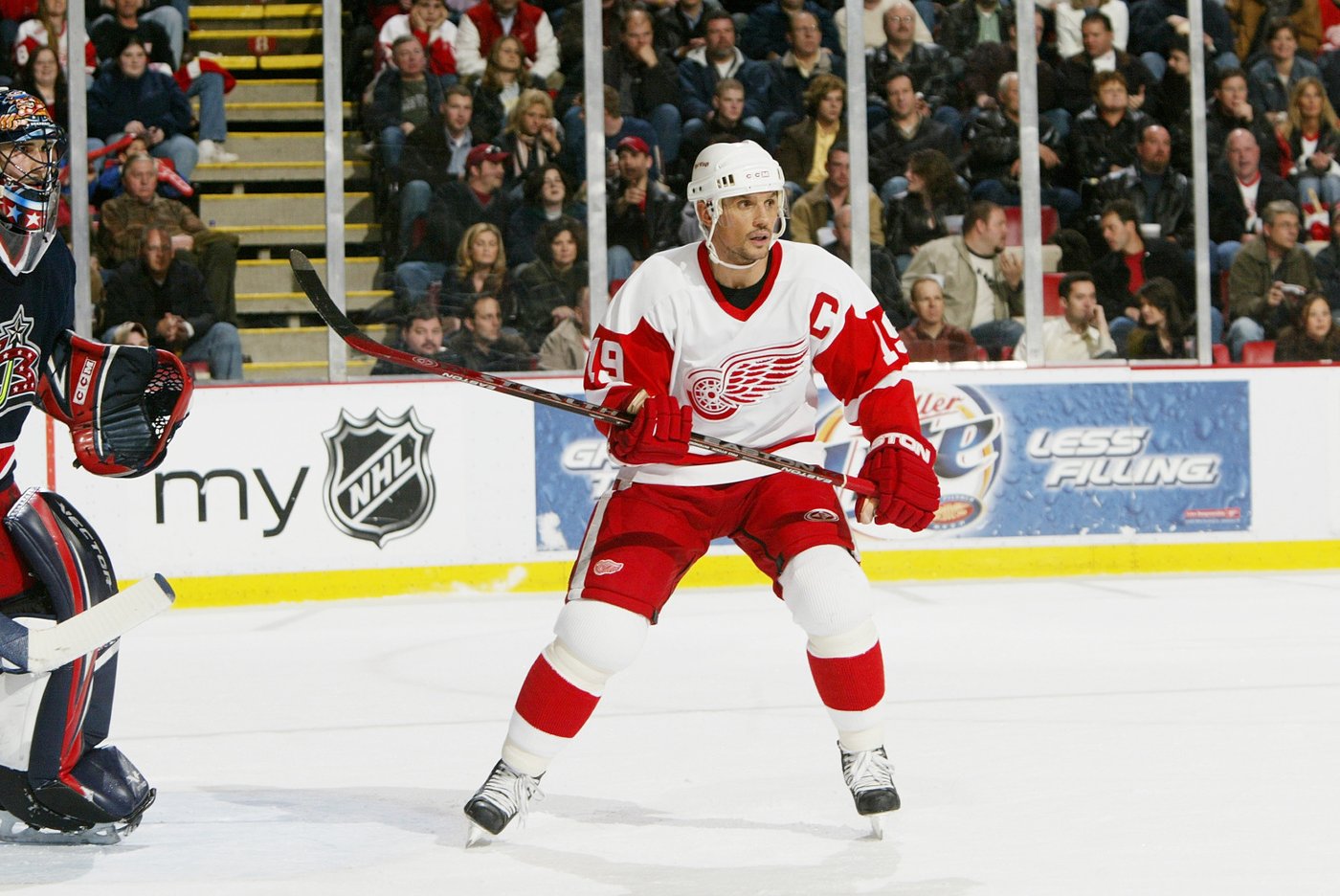Your Cart is Empty

Many of the patterns available across the modern hockey stick industry can trace their origin to curves originally offered by former manufacturer Easton Hockey. Those who played in the ‘90s or early 00’s will remember such classics as the Yzerman or Shanahan, but these well-loved patterns are nearly defunct today.
I do say nearly defunct, because BASE Hockey hasn’t given up on these old-school gems. If you’re looking to relive your glory days or find out what all the fuss was about, take a look at our extensive database of former Easton patterns, available in one-piece sticks or tapered replacement blades.
Yzerman (BC77)
Originally known as the Sher-Wood Coffey curve in the pre-composite days, this beer league favourite “banana curve” was one of three original Easton composite patterns. It became almost impossible to find in high-end composite sticks and blades until BASE introduced it to its pattern lineup last year. The Yzerman is a huge mid curve with a squared toe that’s slightly more rounded than the other two original Easton patterns, the Shanahan and Lidstrom.

Shanahan (BC 14)
This sought-after pattern still lives on in the NHL today, with its most notable current user being Patrick Kane. It’s a long, flat, square, mid-toe paddle cherished by playmakers and danglers. The Shanahan was one of the three original Easton composite patterns, along with the Lidstrom and Yzerman. If you’d like to know more about BASE’s BC14 Shanahan, check out this previous blog post.

Lidstrom (BC05)
This massive blade with extreme features including a big square toe, huge loft, and a deep heel curve is a real love-it-or-hate-it pattern. It was less popular than the other two original Easton composite patterns, but its core users were crazy about it – and still are today. If you’d like to know more about the Lidstrom, stay tuned for an upcoming BASE Hockey Stick 101 article featuring this pattern.

Sakic (BM19)
The most popular pattern (in its different variations) on the market today can be traced back to an Easton wood pattern offered under the Modano name in the ‘90s. It was the pattern of choice for the lead developer on the Synergy project, leading to the creation of a composite mould for the pattern to allow him to test the various developmental versions of the upcoming Synergy stick. The pattern would eventually be introduced to retail as the Sakic – the first new composite Easton pattern released after the original three. Of BASE’s three variations of the Sakic pattern, the BM19, BI19, and BC92, the BM19 is closest to the original Easton Sakic. Offering a twist on the original, BASE provides the BM19 in lies 4, 5, or 6 to suit a variety of preferences and playing styles.

Drury (BH23)
A legendary pattern that is still popular today, the Drury’s mainstream appeal is nevertheless waning as new generations turn to toe curves. The Drury is the quintessential heel curve, with a long, straight, round blade curving deeply right at the heel and twisting way open. It has historically been one of the most popular patterns in the NHL, and even today you’ll still find players using it, including P.K. Subban. The Drury, despite its name, was originally derived from Steve Yzerman’s pro pattern. As more NHLers sought to emulate Yzerman, Easton introduced the Yzerman Pro to its retail lineup as the Drury, with great effect. Today, BASE offers the BH23 Drury in lies 4, 4.75, 5.5, or 6 (LH only) to give players maximum flexibility with this popular curve.

Iginla (BM12)
The Iginla is prized by those looking for a subtle curve that favours control on the forehand and backhand and doesn’t overly elevate pucks. Indeed, it was originally introduced by Easton as a modified version of Bauer’s retail Linden pattern to offer an alternative to the massive Yzerman “banana” mid curve. The Iginla, with its short and relatively straight blade, is a rarity these days but continues to be offered by BASE in its sticks and replacement blades in lies 4, 5, or 6.

Modano (BM09)
Like the Iginla, the Modano is a subtle pattern that offers good control and limited puck elevation. However, the Modano’s different rocker, gradual mid-heel curve, and round toe set it apart. The Modano was also based on a popular Bauer retail pattern, the Lindros, and was launched with Easton’s new Synergy line of composite sticks. The Modano is one of the few mild curves widely available today, and it bears a striking resemblance to Sidney Crosby’s pro pattern. You can get it in a BASE stick or replacement blade in lies 4, 5, or 6.

If you’d like to grab a stick or replacement blade with one of these classic patterns, you’re in luck. Until February 12, you can enter promo code “SAVE20” for a discount of 20% on your online purchase. As always, if you’d like to try out all these old-school curves before you buy, book a fitting session at a BASE fitting center near you.
Comments will be approved before showing up.